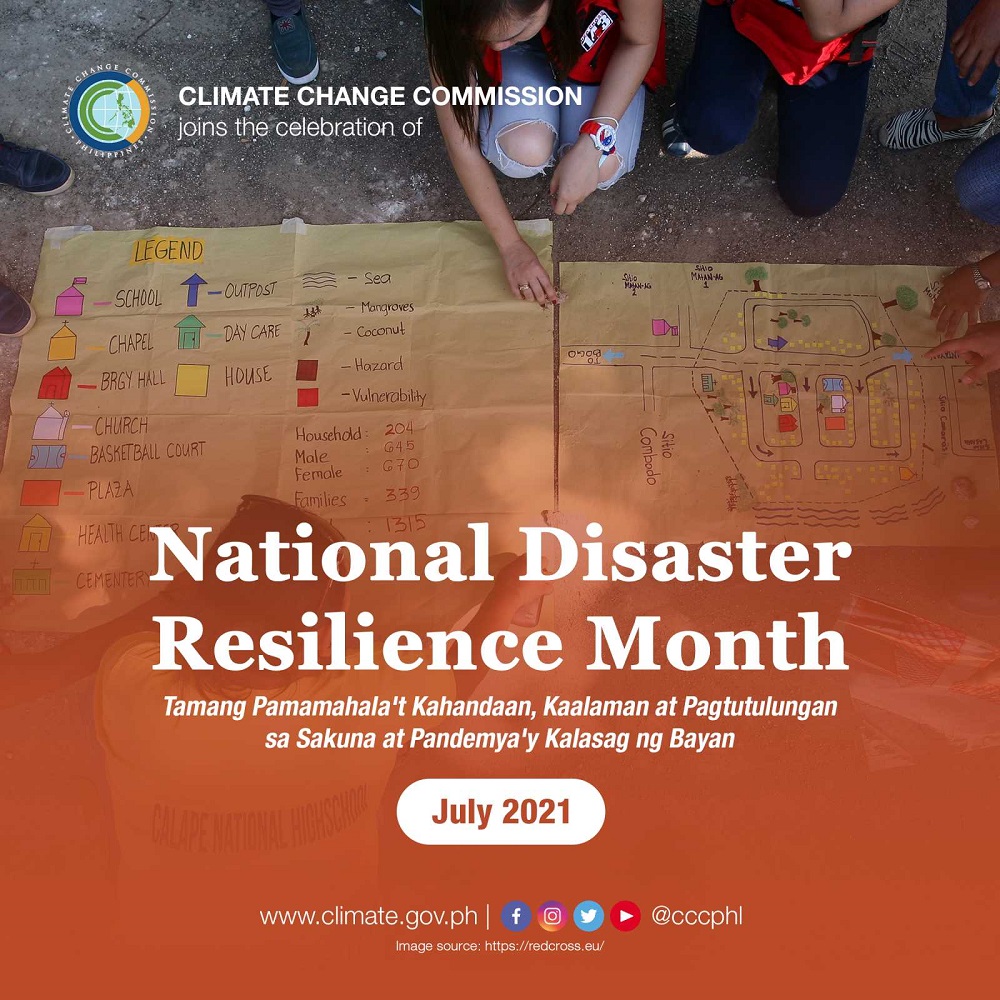
June 30, 2021 Wednesday

MANILA, 1 July 2021 — In observance of the National Disaster Resilience Month this July, the Climate Change Commission (CCC) calls for the shift from reactive efforts to proactive strategies in reducing disaster risks and strengthening the country’s defenses against natural hazards and anthropogenic climate change.
Executive Order no. 29 s. 2017 declares the month of July of every year as National Disaster Resilience Month, which emphasizes the need to understand disaster risk, investing in disaster risk reduction management, increasing disaster awareness programs, and enhancing community disaster preparedness for effective response.
This year’s theme, "Tamang Pamamahala't Kahandaan, Kaalaman at Pagtutulungan sa Sakuna at Pandemya'y Kalasag ng Bayan," focuses on the strengthening of disaster risk governance and the collaboration of all Filipinos to overcome the challenges of the pandemic and to build a green and resilient normal.
The Philippine Atmospheric, Geophysical and Astronomical Services Administration (PAGASA) recently officially declared the start of the rainy season. Due to our geographical location, an average of 20 tropical cyclones enter the Philippine Area of Responsibility every year, and most develop into typhoons. The worsening climate influences the intensity of these weather disturbances, therefore incurring more loss and damages to communities. With this, the Commission reminds the public to heighten disaster preparedness and undertake preventive measures to lessen the impact of natural hazards.
The climate body also encourages local governments to invest public resources wisely in long-term and improved urban planning and disaster risk reduction aligned with the latest climate science; and to lead and engage their respective cities, municipalities, and provinces in promoting a culture of safety and resilience engaging all stakeholders and sectors, raising awareness on disaster and climate risk at community and family level, and improving local early warning systems.
Individuals and communities can contribute to disaster preparedness simply by participating in the conduct of safety drills, knowing evacuation places and preparing emergency "go bags", dredging of canals and esteros, and segregating and recycling garbage, among many others.